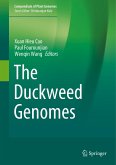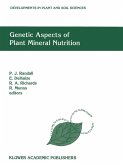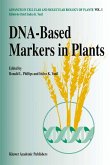The main application of genomic markers is the mapping, diagnosis, understanding, manipulation and eventual molecular cloning of loci of medical, biologic or economic interest. These achievements are likely to have a practical impact not only in basic science, e.g. in the elucidation of the basic processes involved in a particular pathway or in retracing the history of plant speciation, but also in breeding practice. In agriculture this translates into the exploitation of this knowledge for further genetic improvement since traits of agronomic interest are often polygenic. The elucidation of the genetic basis of polygenic inheritance and the subsequent efficient utilization of this knowledge in breeding schemes require the availability of an adequate network of genetic markers spanning the entire genome. The purpose of the present manual is to provide new investigators in this area with an introduction and a basic practical state-of-the-art description of how to proceed.
Bitte wählen Sie Ihr Anliegen aus.
Rechnungen
Retourenschein anfordern
Bestellstatus
Storno








